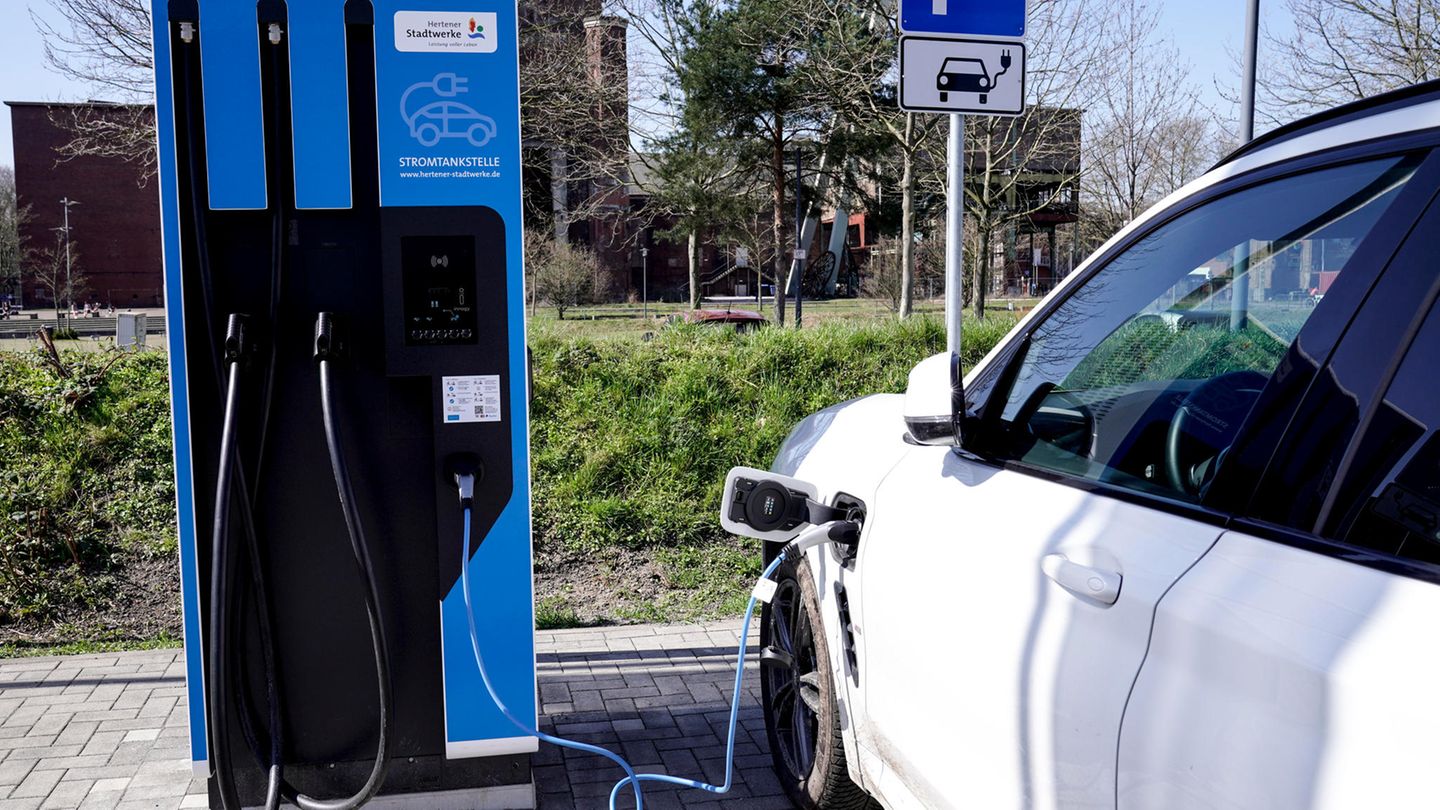Charging stations are becoming increasingly important due to the electric car boom. The Association of the Automotive Industry (VDA) has therefore examined the charging infrastructure for e-cars in Germany and has come to a disappointing result.
“The expansion of the charging infrastructure is still lagging behind (…)” – wrote the VDA in the “Ladenetz-Ranking” study published on Tuesday, referring to the situation in Germany. On average, there are around 21 electric cars per public charging point. In the last VDA charging network ranking in April, there were around 17 electric cars per public charging point. That is “clearly too little”. Also or precisely because other offers, for example in retail, parking garages or at petrol stations, have not yet been developed across the board.
And: The relationship is currently deteriorating. Because the number of newly registered electric cars is increasing faster than the expansion. There are currently an average of around 250 public charging points being added each week. In order to achieve the goal of the traffic light coalition of one million public charging points in 2030, around 2000 charging points would have to be built every week.
Charging infrastructure is the “most important prerequisite” for electromobility
“A nationwide charging infrastructure is the most important prerequisite for people to continue to switch increasingly to electromobility. They have to have the confidence that they can charge their e-car anytime and anywhere,” says VDA President Hildegard Müller.
A study by the VDA in August had already shown that the insufficiently developed charging infrastructure is an important argument for many people against buying an electric car. 64 percent of those surveyed stated that there were too few charging stations. Among the people who want to buy a new car in the next few years, electric cars are only in fourth place – after combustion, hybrid and diesel vehicles.
There are currently 48,717 public charging points in Germany, 7053 of which are fast charging points. The number of current electric cars in Germany is 1.06 million vehicles. Wolfsburg still does best. According to the current ranking, the city in Lower Saxony is the most attractive city for electric cars in Germany-wide comparison. There are 817 charging stations with a total of 125,336 cars. Ingolstadt follows in second place, Passau in third place.
Criticism of the payment system at charging stations
Another crucial aspect is the payment system at public charging points. Up until now, drivers usually had to sign a contract with the provider; Paying at the charging station is usually only possible via closed systems such as QR codes, apps and RFID cards – special cards. A study recently published by the ADAC found that 67 percent of those questioned would facilitate ad hoc payments with a bank card at the fast charging station.
In addition, 27 percent of those surveyed rate the prices per charging process as too expensive. Two thirds even fear a price increase for fast charging in the future. The ADAC is also critical of the pricing of the fast charging stations. “Electric car drivers often cannot see which prices are actually being charged at charging stations, and in some cases the prices for ad-hoc charging are twice as high as those for contract customers,” says ADAC Technology President Karsten Schulze. Due to the “price differences and the complexity of the tariffs “Customers cannot calculate the costs for a charging process.
Sources: , ,
Source From: Stern
I am a 24-year-old writer and journalist who has been working in the news industry for the past two years. I write primarily about market news, so if you’re looking for insights into what’s going on in the stock market or economic indicators, you’ve come to the right place. I also dabble in writing articles on lifestyle trends and pop culture news.




